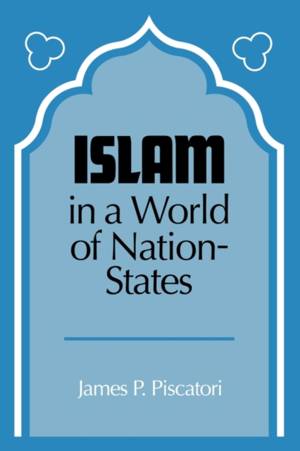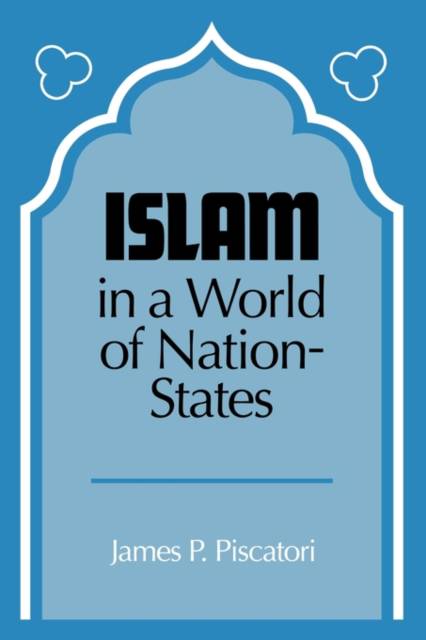
- Afhalen na 1 uur in een winkel met voorraad
- Gratis thuislevering in België vanaf € 30
- Ruim aanbod met 7 miljoen producten
- Afhalen na 1 uur in een winkel met voorraad
- Gratis thuislevering in België vanaf € 30
- Ruim aanbod met 7 miljoen producten
Zoeken
Islam in a World of Nation-States
James P Poscatori, James P Piscatori, Piscatori James P
Paperback | Engels
€ 64,95
+ 129 punten
Omschrijving
Based on a reading of classical Islamic literature, the writings of modem Muslims and on extensive travel and interviews, this book discusses ways in which Muslim peoples adapt themselves to a world composed of sovereign nation-states, having peaceful and equal relations with both non-Muslim states and collectivities of other Muslims. The classical and medieval legal theory of Islam appears to place two obstacles in the way of such adaptations; it divides the world into two areas, Muslim and non-Muslim, between which relations can at best be those of truce; and it demands that the life of societies should be regulated by the will of God as revealed in the Qu'ran, not by the will of rulers or of the people. Dr Piscatori shows that the traditional theory provides for some degree of territorial pluralism, which has been clearly reflected in the historical experience whereby stable nation-states have emerged and become part of the international order.
Specificaties
Betrokkenen
- Auteur(s):
- Uitgeverij:
Inhoud
- Aantal bladzijden:
- 204
- Taal:
- Engels
Eigenschappen
- Productcode (EAN):
- 9780521338677
- Verschijningsdatum:
- 6/11/1986
- Uitvoering:
- Paperback
- Formaat:
- Trade paperback (VS)
- Afmetingen:
- 151 mm x 228 mm
- Gewicht:
- 267 g

Alleen bij Standaard Boekhandel
+ 129 punten op je klantenkaart van Standaard Boekhandel
Beoordelingen
We publiceren alleen reviews die voldoen aan de voorwaarden voor reviews. Bekijk onze voorwaarden voor reviews.








